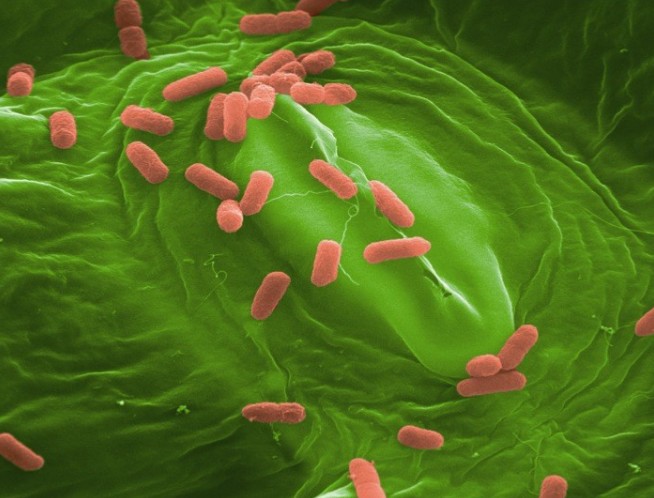
Bacterial infections cause a huge burden of disease throughout the world and kill millions of people and animals each year through diseases such as pneumonia, diarrhoea and meningitis, as well as genito-urinary and blood infections. Bacterial pathogens are also responsible for many of the infections acquired in hospitals and for some ‘old’ diseases, including tuberculosis, which is now on the increase in many parts of the world. Resistance to antibiotics is now widespread among bacteria and is increasing at an alarming rate. Through our fundamental research activities, we aim to gain better understanding of the mechanisms of bacterial infection, which would aid the identification of new targets for antimicrobial compounds and vaccine candidates.
We are a diverse group of scientists interested in understanding the molecular mechanisms underlying bacterial disease. Our activities range from fundamental bacteriology, host –pathogen interactions and the structural basis for virulence. Several of us are part of the “MRC Centre for Molecular Bacteriology and Infection,” a College cross-faculty initiative that uses multidisciplinary approaches and cutting edge techniques to study bacterial infections at atomic, cellular and organism levels.
Institutes, centres and initiatives
This Research Theme is associated to the following institutes, centres and initiatives:
- Centre for Structural Biology
- Imperial Network for Vaccine Research
- Indian Institute of Science (IISc) Bangalore
- Institute of Infection
- Microbiome Network
- Research Complex at Harwell
- Wellcome Sanger Institute
Academic Staff in this area
Dr Morgan Beeby
Dr Morgan Beeby
Associate Professor in Structural Biology
Dr Konstantinos Beis
Dr Konstantinos Beis
Reader in Membrane Protein Structural Biology
Professor Doryen A Bubeck
Professor Doryen A Bubeck
Professor in Structural Immunology
Professor Bernadette Byrne
Professor Bernadette Byrne
Associate Dean (Equality, Diversity and Inclusion) for FoNS
Dr Abigail Clements
Dr Abigail Clements
Associate Professor
Dr Ernesto Cota
Dr Ernesto Cota
Associate Professor
Dr Tiago R Dias da Costa
Dr Tiago R Dias da Costa
Associate Professor in Bacterial Pathogenesis
Professor Marc S Dionne
Professor Marc S Dionne
Professor of Innate Immunity
Dr Ana S Eulalio
Dr Ana S Eulalio
Associate Professor in Cellular Microbiology
Dr Sevasti Filippidou
Dr Sevasti Filippidou
Teaching Fellow
Professor Alain A M Filloux
Professor Alain A M Filloux
Visiting Professor
Professor Gad M Frankel
Professor Gad M Frankel
Professor of Molecular Pathogenesis
Dr Jose Jimenez Zarco
Dr Jose Jimenez Zarco
Associate Professor in Synthetic Biology
Dr Gerald J Larrouy-Maumus
Dr Gerald J Larrouy-Maumus
Reader in Molecular Microbiology
Professor Steve Matthews
Professor Steve Matthews
Professor of Chemical and Structural Biology
Dr Julie A K McDonald PhD
Dr Julie A K McDonald PhD
Associate Professor
Professor Thomas K Meier
Professor Thomas K Meier
Visiting Professor
Dr Sarah L Rouse
Dr Sarah L Rouse
UKRI Future Leaders Fellow
Dr Julia Schroeder
Dr Julia Schroeder
Associate Professor
Professor Huw D Williams
Professor Huw D Williams
Professor of Microbiology
Postgraduate research
Interested in studying a PhD at the Department of Life Sciences? Find out more about postgraduate research opportunties.